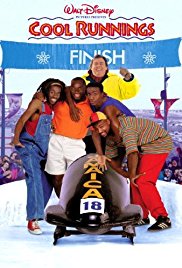Before Watching the Movie:
To help children fully appreciate this film make sure they know the following:
Every four years the best athletes from all over the world gather to compete in the Olympic Games. There are two sets of games, the summer games and the winter games.
Jamaica is an island in the Caribbean which was a British colony until 1962. The Jamaican people are descendants of slaves brought from Africa to work on plantations. They speak English because the plantation managers would not let the slaves keep the languages they brought from Africa and required them to speak only English.
After the Second World War, Germany was divided into two countries, communist East Germany and democratic/capitalist West Germany. For propaganda purposes, the East German government invested heavily in its sports teams. The team that ridiculed the Jamaicans was from East Germany. Germany was reunited into one country in 1991 when the Cold War between the U.S. and Russia ended.
Switzerland is a small mountainous country in the center of Europe. Like the Germans, the Swiss have a reputation for being very good engineers. Most of Switzerland is in the Alps, and the Swiss have excelled at winter sports.
On a map or a globe, show them the locations of Africa, Jamaica, England, Switzerland, former East Germany, and Canada.
After Watching the Movie:
Once the movie is over, tell children the following:
The Jamaican bobsled team finished last in the 1988 Calgary Winter Olympics. Their bobsled crashed due to the inexperience of the driver. However, they caused a media frenzy and inspired people all over the world.
Since 1988, the Jamaican bobsled teams have competed in every Olympics, except for 2006, when their team did not qualify. They swear they’ll be back for the 2010 Olympics. In previous years, some of their teams did very well, beating the U.S. and entries from France and Italy. While the performance of their 2006 team was a disappointment, the Jamaicans are proud that a Jamaican, who competed for Canada, won the Silver Medal in the two-man bobsled competition in 2006.
The factual truth in this movie is that a Jamaican bobsled team competed in the Olympics and inspired the world. The rest is fiction. The idea of a Jamaican bobsled team was first brought up by two Americans. They had noticed that Jamaicans were very strong sprinters and that the sprint at the beginning of a bobsled race is one of the most important parts of the sport. They convinced the Jamaicans to try to qualify for the Olympics. Most of the first team consisted of young men from the military. There is now a Jamaican women’s bobsled team.
There are two kinds of truths in a movie. One can come from facts and the other is found in all good stories: truths about people and their reactions to life situations. This movie has that kind of truth as well.
Move from here to a discussion of the movie. A good way to start is to ask, “Who was your favorite character in the movie?” Guide the discussion to the themes of the film. You can also move from there to the Social-Emotional Learning or Morals-Ethical Emphasis discussion questions of your choice. See below.


